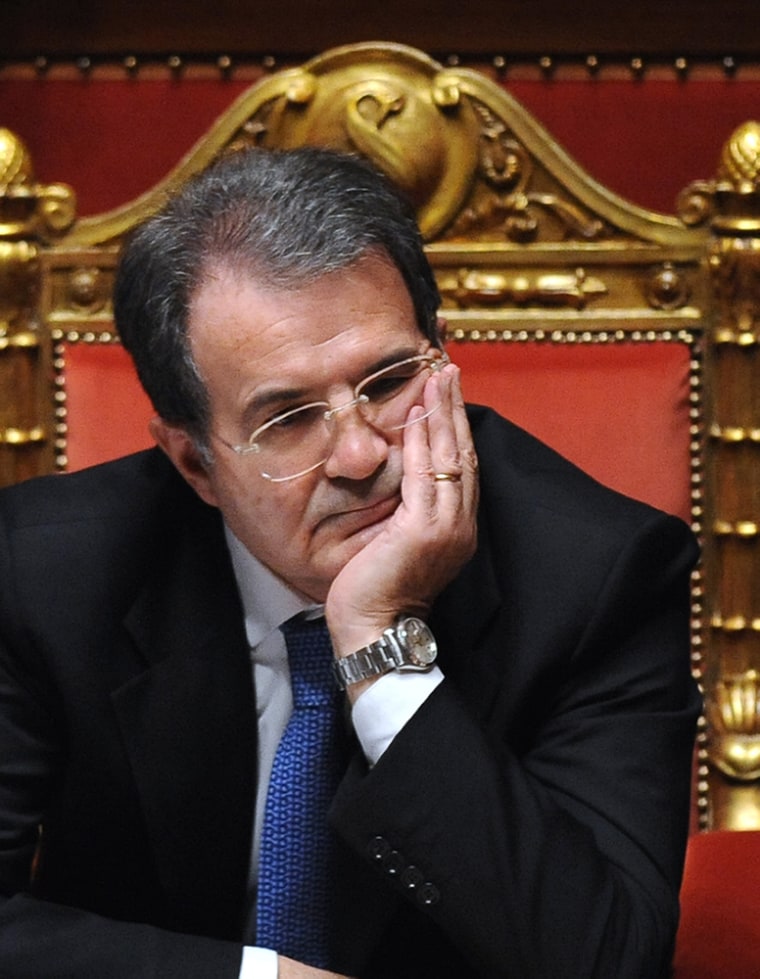Italian Premier Romano Prodi resigned Thursday night after his government lost a risky Senate confidence vote, obliging him to end his 20-month-old government.
The center-left government fell four votes short of the 160 needed for victory. The vote was 161-156.
Elected in April 2006, Prodi has had a shaky government from nearly the start. But it lurched toward collapse after a small Christian Democrat party, whose votes were vital to a coalition majority in the Senate, yanked its support earlier this week in the latest squabbling among his allies.
Prodi tried and failed twice as prime minister. Last time, it was communists in 1998 who revolted against him half way through his five-year term. A decade later, Catholics who turned against him after 20 months.
The 68-year-old former economics professor said he will not stand again for premier.
Right to the end, Prodi — an unusually mellow politician, especially by Italian standards —declared himself to be "serene" even as allies distanced themselves.
A former European Commission president, Prodi realigned Rome's foreign policy upon taking office by putting Europe before the United States, unlike the conservative government before him.
He staunchly advocated multilateral bodies like the United Nations and NATO, and while he sped Italy's withdrawal from Iraq he also boosted its peacekeeping profile by taking command of the U.N. mission in Lebanon.
Saddled with a razor-thin majority following Italy's closest election in history, he was forced to make a virtue out of necessity — using confidence votes to ram through legislation that continually tested his center-left coalition.
But his daring had limits, and survival in office came at the price of enacting more ambitious reforms for an economy that has lagged the euro zone for more than a decade.
Friends called him 'mortadella'
If his predecessor, former prime minister Silvio Berlusconi, was known as a man who thrived on controversy, then Prodi was known for trying to stay above the fray of Italian politics.
Critics seized on his quiet, mumbling exterior as a sign of a man asleep at the wheel. But allies said the man known even to his friends as "mortadella" — a plump sausage from his native Bologna — was a crafty, dependable politician.
He was the only man to have beaten Berlusconi, a billionaire media mogul known for his charisma and communications skills. But defeating Berlusconi proved easier than staying in power.
A law graduate who studied at the London School of Economics and taught at Harvard, Prodi knew that keeping his communists-to-Catholics coalition united would not be easy.
He created U.S.-style primary elections that he handily won, and then made allies publicly agree to stick by him until the next scheduled elections in 2011. But such pledges mean little in country which has seen 61 governments since World War II.
The Presidential Palace said President Giorgio Napolitano would start consulting Friday with political leaders to help him decide how to proceed.
